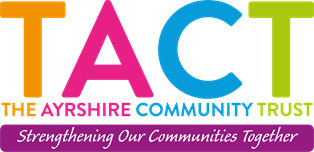Having grievance procedures for volunteers may sound rather formal, but they intend to promote fairness in the treatment of volunteers and ensure that as far as possible volunteers have the same rights as paid staff.
Most difficulties can be settled through the normal channels of communication. Where this is not possible, the purpose of a Volunteer Grievance Procedure is to provide for the orderly resolution of joint problems in a fair and open way.
Informal Discussions
In the first instance, if any volunteer has a grievance about their volunteering or a colleague they should discuss it informally, as soon as possible, with their line manager (or another manager if the grievance involves the line manager). Their grievance should be taken seriously and everything done to try to resolve the issue informally. The majority of concerns are likely to be resolved at this stage.
Best Practice Guidelines for a Volunteer Grievance Procedure
The following are suggested best practice guidelines for Volunteer Grievance Procedures. How your committee or board chooses to tailor or adapt these will depend on the scale and management structure or your group or organisation.
Stage 1
If a volunteer feels that the matter has not been resolved through informal discussions, they should be able to put the complaint in writing to the appropriate person within your group or organisation.
Follow this up with a meeting to allow an opportunity for the volunteer to explain their complaints and share how they would like them addressed. The volunteer will have a right to be accompanied to this meeting.
Following this meeting, the line manager (or other appropriate person) will give a written response usually within 5 working days of the meeting outlining how the complaint(s) will be responded to. If the complaint requires further meetings or investigations, the 5 working days limit may need to be extended. The response will follow this meeting and include a reference to the right of appeal.
Stage 2
If the volunteer feels the issue has still not been resolved satisfactorily, they should raise the matter, in writing, to the committee or board. The volunteer will be invited to a meeting where they can discuss the matter and establish how best to resolve the situation. The volunteer has a right to be accompanied to this meeting.
Following the meeting, the Director will give a written response within 5 working days of the meeting outlining how the complaint will be responded to. If the complaint is against another member of staff or volunteer, or requires further investigation, the Director will need to carry out further meetings or investigations. In this case, the 5 working days limit above, may need to be extended. The response will follow this meeting and include a reference to the right of appeal.
Right of Appeal
If the volunteer wishes to appeal against any grievance decision, they should do so in writing within five working days of the decision. Your board may choose to set up an Appeals Sub-committee to hear the volunteers appeal. The volunteer should be given the right to be accompanied to the appeal meeting. The Appeals Sub-committee’s decision will be final.
